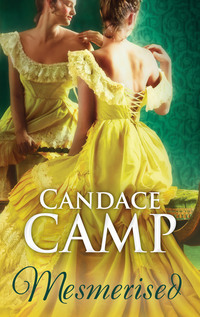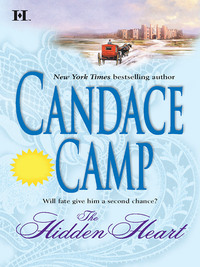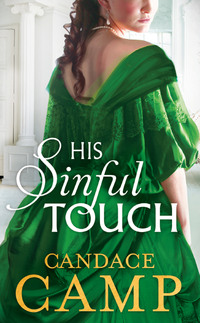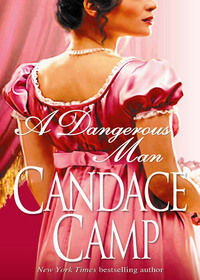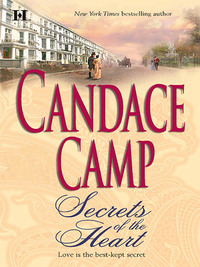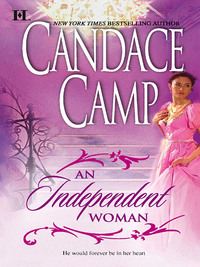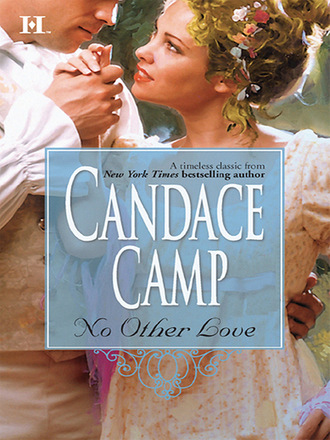
Полная версия
No Other Love
He reached up his hands toward her, black eyes dancing. “Help you down, miss?”
She could not answer, simply pulled her foot from the stirrup and twisted off the sidesaddle, leaning down to him. His hands grasped her waist, lifting her down effortlessly, and she braced her hands on his shoulders to steady herself. She could feel the heat of his body beneath the rough woolen shirt, the hard stretch of bone and muscle. For an instant they were close, his face so near hers she could see the thick, dark fringe of lashes that shadowed his eyes. Then she was on the ground, and in the next instant, the Earl was there, stepping around the groom to take her arm and lead her into the house.
Nicola scarcely heard a word he said—nor much of any of the rest of the conversation through the hearty post-hunt brunch. Her thoughts were on the groom. She wanted to know his name, but she could think of no way to inquire about him that would not sound exceedingly strange. And even if she could have phrased it acceptably, she knew that it was doubtful that anyone would know who he was, even the Earl, who employed him. Servants might as well have been part of the furniture to most people of her social set, she knew, and though they knew the name of the most important ones—the butler, the housekeeper, their personal maid or valet—it was rare that they knew the names of the multitudinous footmen, maids and grooms. So she was forced to leave later without having learned anything of use to her.
After that, her mother no longer had any difficulty in persuading her to attend a function at Tidings. When her mother suggested they pay a thank-you call the following day, she acquiesced without a murmur, causing her mother to glance at her oddly. The next week she agreed to attend a small dinner party at the Earl’s house, and when he suggested a picnic up on the moor, leaving from his house, she smiled and agreed that the idea sounded lovely.
But despite all her efforts to be at Tidings—which had cost her a great deal of inner squirming—she did not catch even a glimpse of the groom. She surmised that he was not important enough in the line of command in the stable to be allowed to interact directly with guests unless there were such a large number present that they needed all the grooms, such as at the hunt.
She told herself that it was foolish to be so interested in the man. She had, after all, seen him only for a moment, and just because she had had that odd response, it did not mean that he was anyone special or significant. It could have been just some odd physical twinge, indicative of nothing.
She could not even have said what she hoped to accomplish by seeing the man again. All she knew was that she was restless and unsettled, that she had to see him.
Oddly enough, it was not at Tidings that she came face-to-face with him again two weeks later. It was at Granny Rose’s cottage.
Not long after she had moved to Buckminster, when she had administered a tonic to one of the upstairs maids for a head cold and given a salve to the gardener to ease the pain of his reddened knuckles, people had begun to tell her about an old woman in the area. Everyone called her Granny Rose, though Nicola surmised that no one was actually related to her. She was known throughout the countryside for her remedies. There were even those who superstitiously considered her a witch. It was said that she knew more about plants and their medicinal properties than anyone, and for miles around, people had long relied on her potions to ease the pain of childbirth or protect a wound from infection. Even the old Lord Buckminster himself, who had suffered terribly from the gout, had availed himself of her remedies to ease the disease.
Nicola immediately wanted to meet the woman, and after some cajoling, she got one of the maids to lead her through the woods to the woman’s cottage, nestled in a pleasant spot sheltered by a group of trees cupped like a hand around the little house. It was a small structure of wattle and daub, with a thatched roof, and so overgrown with ivy along one side that in summer it almost blended in with the green trees behind it. A small garden of herbs grew beside the house, tinging the air with scent.
Granny herself seemed almost as ancient as the house, her skin creased and browned like a withered old apple, and her hair a pure snow white. But her eyes were merry and younger than she appeared, and her smile, though gaptoothed, was so warm that one had to respond to it in kind.
Nicola took to the old woman at once, and Granny Rose had an equal affinity for Nicola. Nicola was soon riding over to the little cottage frequently, where Granny taught her far more about herbs and medicinal plants than Cook had ever known—although it took her a little time to understand Granny’s thick Dartmoor accent. Nicola helped her with her garden of herbs and plants and walked with her in the woods, where Granny searched for wild plants, pointing them out to Nicola and explaining all their uses and dangers. She taught her how to decoct her potions, how to dry and cook and steep and grind, what proportions to use. Nicola diligently wrote down each step of her recipes, adding them to her collection. Granny, who told her that her own daughter had never been interested in learning her secrets, was happy to entrust them to Nicola to use and preserve.
Granny was wise in many other ways, too, and Nicola often stayed to chat with her over a cup of fragrant tea. She had told her about her father and his death, about her mother, even about the persistent pursuit of the Earl of Exmoor. Granny frowned at this and shook her head.
“A bad ‘un, that ‘un. Ye best be stayin’ away from him,” she said grimly.
“Bad?” Nicola looked at her, faintly surprised. Though she had not liked the Earl, she had not attributed it to any sense of evil in the man. “But no one has said that he has done anything wrong.”
“Mayhap they don’t know it,” Granny pointed out, with a sage nod of her head. “Mayhap he’s good at hiding it from his own sort. But them that works fer him, they see, and they know. There’s no kindness in the man.”
“Well, I shan’t be marrying him,” Nicola assured her. “No matter what Mother thinks.”
After that conversation, she was a little embarrassed to tell Granny that she had gone against her own judgment and had been to Tidings as frequently as she had been able to the past two weeks. Besides, she found herself reluctant to reveal her desire to see the groom again. Granny would no doubt find it as odd as any of the people in her own class would; ladies did not mingle with grooms, even ladies as pleasant and down-to-earth as Nicola. Moreover, Nicola found herself reluctant to share anything about the feeling that had swept over her; it was something she had hugged to herself for two weeks.
As they drank their tea, Nicola noticed that Granny Rose kept glancing out the window with some frequency, and finally she realized that her mentor seemed to be waiting for someone. So Nicola drank a last sip of her tea and rose, taking her leave. Granny smiled and patted her arm, and Nicola thought with a faint sense of hurt that Granny was happy for her to go. She told herself that Granny’s visitor was probably someone who did not wish to be seen visiting the local medicine woman, which also meant that it was probably some member of the local gentry whom Nicola would recognize. The thought made her feel a little bit better.
She slipped out the front door and started down the path, then stopped abruptly when she realized that there was a man standing beside her horse, running his hand down the animal’s neck and talking to it in a low voice. He turned at the sound of the door closing, and his brows sailed upward in surprise.
Nicola simply stood, stunned into a breathless silence. The man looking back at her was the groom from Tidings. He was dressed in his Sunday best today, though he had taken off the dark jacket and had it slung over his shoulder. His shirt was white against his browned skin and open at the throat, the sleeves rolled up against the heat of the day.
He smiled now, the same cocky grin that he had worn the other day, as he sauntered toward her. “Well, now, if it isn’t the lady. And what would such a high-born creature be doing coming out of Granny Rose’s cottage?”
He stopped only a foot away from her and looked down at her, one eyebrow arching in amusement. His eyes were as dark as she remembered them, the dimple in his cheek just as deep. Nicola suddenly found it difficult to breathe.
She lifted her chin a little. She was not about to let him know that he had a drastic effect on her. “Why shouldn’t I be?”
“They usually send their maids…unless, of course, they’re seeking a remedy for something they can’t let anyone know about.”
Nicola’s eyes widened as she realized his implication, and she drew a sharp breath at his audacity. She was about to let fly with a withering retort when he laughed and made a sweeping bow.
“But of course that could not be the case with a young lady as innocent and beautiful as yourself,” he continued in a light voice, blurred by the local accent. “Ye’d have no need of beauty creams or love potions, obviously. Half the men in Dartmoor must already be at your feet.”
“And you obviously have no need of any charm yourself,” Nicola replied, unable to keep from smiling. “You are already too smooth by half.”
He let out an exaggerated sigh of relief, his black eyes dancing. “Whew. I’m glad to hear ye say so. Me gran’d have me ears if I offended one of her customers.”
“Your gran?” Nicola asked, intrigued. “Do you mean to say she really is your grandmother?”
He nodded. “Me mother’s grandmother.”
“I’m surprised I’ve never seen you before,” Nicola commented.
“I live at the stables, you see, at Tidings. ‘Tis part of me job. I visit Gran every Sunday, on me day off.”
“I see.”
There was a moment’s pause, during which Nicola realized that she had nothing to stand here talking to this young man about. Desperately she searched for something to say to prolong the moment.
“Ma and I lived in Twyndel,” he said suddenly. “But last year, when she died, I moved back to be near Gran. She’s gettin’ on, ye see.”
“I am not from the area, either,” Nicola volunteered. “We are staying with my aunt, Lady Buckminster.”
“Ah.” The grin returned. “We had a right interestin’ talk, Lady Buckminster and me, about her mare.”
“I am sure it was,” Nicola said with a chuckle. “My aunt is not prone to talk of anything else. Had you not taken good enough care of her?”
“You wound me, miss.” He put on a pained air. “She’d injured her fetlock, so Lady Buckminster came to the stables to leave the mare, as we were nearer than Buckminster. I put one of Gran’s salves on it, and the mare was right as rain the next day when she came to see about it. ‘Twas the salve she was wanting to talk about.”
“Oh. Well…” Nicola glanced around. She could think of no reason to linger, yet she wanted very much to stay right here, talking to him. “I suppose I should be leaving.”
Was that a flash of disappointment in his eyes? “Oh. Yes. Of course.”
Nicola began to walk toward her horse, her steps lagging. He strolled along with her.
“Do you…come here often?” he asked casually.
Nicola glanced at him. There was nothing casual about the intense interest in his eyes. “Yes. I am interested in herbs and remedies. Your grandmother has very kindly taught me a great deal. I come here to learn and to purchase supplies from her. She has let me have a corner of her garden for my own.”
He looked at her in surprise. “You are growing them yourself?”
“Why, yes. I dry and grind and mix them, as well,” Nicola responded tartly. “I realize that you think I am a useless, shallow slip of a girl, but I do have interests outside of my dress and my hair.”
He had the grace to redden a little beneath his tan. “Indeed, miss, I did not think you useless and shallow. It is just a little unusual.”
“If you knew me, you would find that I am a little unusual.”
He smiled. “I could already tell that. Not many ladies would stand about chatting with grooms.”
“Mmm. My mother tells me I am deplorably egalitarian,” Nicola agreed lightly.
They had reached her horse, and Nicola turned to him. “Well. Goodbye, then. I—it was nice to see you again.”
“Thank you.” He paused, then said quickly, “I come to visit Gran every Sunday.”
“Do you?” Nicola’s heart began to pound a little harder in her chest. He was telling her that he wanted to see her again, wasn’t he? “I—uh—” She had to pause and clear her throat, which seemed suddenly swollen. “Then perhaps I will see you here again.”
She ended her statement on an upward note, sneaking a glance up at him. To her explosive relief, he grinned.
“Perhaps you will,” he agreed. “Let me help you up.” He nodded toward the horse.
Then, to Nicola’s surprise, instead of cupping his hands to give her a leg up, he placed his hands on either side of her waist and lifted her to her saddle. He stepped back, looking up at her. Nicola took up her reins in trembling fingers. She could feel the imprint of his fingers against her flesh, as if they had burned into her.
“I—I don’t know your name,” she said softly.
“It’s Gil, miss. Gil Martin.”
“Don’t call me ‘miss,’” Nicola said quickly, something in her rebelling against the subservience in this common form of address from servants.
“All right,” he said slowly, watching her. “What should I call you, then?”
“My name is Nicola Falcourt.”
The smile that crept across his face this time held none of its former amusement, only a kind of heat that stirred Nicola’s blood. “All right. Nicola.”
HE WAS THERE AT GRANNY ROSE’S the following Sunday when Nicola arrived. Nicola saw the faint consternation on Granny’s face when she opened the door to find Nicola on the step, as well as the uneasy way she glanced over at her grandson. Though she and Granny talked easily enough together, as equals, she supposed that Granny must be uncertain about her being thrown together with a servant.
Gil rose from his seat at the table, his eyes intent on Nicola’s face. Nicola looked at him, and a wave of heat washed through her, so fierce that she blushed with embarrassment.
She sat down at the table with Gil and Granny Rose, and Granny politely offered her a cup of tea. The three of them sat and drank tea together, their conversation awkward and stilted. But later, he walked her halfway home, strolling along beside her as she led her horse by its reins. They talked about any and everything, from Granny Rose and her home medicines to Nicola’s father to a foal that had been born two days ago at the Tidings stables. Nicola found herself telling him things she had never told anyone before, even her sister Deborah, her innermost feelings and thoughts. When at last they reached the point where he must turn off for Tidings, they hesitated, unwilling to part.
“Will ye be comin’ to the main house this Friday, then?” he asked, glancing at her, then away. “His lordship’s dance, I mean.”
“What?” Nicola was looking at him, watching the play of the sun on his crow-black hair and fighting the sudden urge she felt to reach up and sift her fingers through it. It took a moment for his words to register. “Oh. Yes.”
She grimaced. She no longer had any desire to go to Tidings now that she had found Gil. But she could hardly tell her mother that, so she had had to accept the invitation.
Gil looked away, seemingly studying intently a rock on the ground at his feet. “The others are sayin’ that he’s sweet on ye.”
“Exmoor?”
He nodded. “’Tis common gossip about the house.”
Nicola sighed. “He seems to be.”
“And you?” He looked up abruptly, his dark eyes boring into hers. “What do ye feel for the man?”
“The Earl?” Nicola asked in some astonishment. “Why, nothing. What would I feel?”
“There’s those sayin’ ye’ll be acceptin’ him.”
“Never.”
Gil relaxed a little. “Well, then…that’s all right.”
“I beg your pardon?”
Gil smiled faintly. “Never mind. I’d best be going. Almost anyone could happen by.”
He hesitated, his eyes going to her mouth, and for a brief, dizzying moment Nicola thought that he meant to kiss her.
But then he swung away, moving swiftly down the track toward Tidings, turning back once to raise his hand in a farewell wave. Nicola watched him go, her insides in a turmoil. Had he wanted to kiss her? Had she wanted him to? When he had asked her if she was attending the Earl’s ball on Friday, she had felt an instant’s leap of hope, a vision of his leading her onto the floor in a waltz, before she had realized how foolish that idea was. If she saw him, it would certainly not be on the dance floor, but in the drive in front of the house, helping with the horses and carriages. That was the last thing she wanted, she thought, after this afternoon—to see him in the context of servant, with her the guest, and with Exmoor, her mother and all the others around.
Nicola turned and led her horse to a low stile, where she could climb up and remount him. She scrambled up and turned the gelding toward home, sunk in her thoughts. She had never felt this way before, so confused and torn and giddy. She had wanted Gil to kiss her; she was too honest to deny that fact, at least to herself. She had wanted to taste his lips, and she wished with all her heart that he could be one of the local swains at the Earl’s ball, that she could twirl around the floor in his arms, swooping and turning to the grand strains of a waltz.
But she was no fool. However well she might get along with the servants and the villagers, however much she might think that the common folk she knew were as good as or better than her fellow aristocrats, she also knew that the gulf between her and a stable boy was vast—even unbridgeable. There could be no future for them—nor, if she was honest, could there be much present, either. What could they possibly have except a few afternoons together like this? What could happen except that both their hearts could be broken?
Her thoughts brought her to tears, and she knew that she was already halfway to falling in love with Gil. It would be foolish, disastrous, she told herself. She could not go on in this headstrong, impulsive way.
By the time she reached home, she had made up her mind that she would not go to Granny Rose’s next Sunday, however much she wanted to. It would be better all around if she did not let anything develop between them.
NICOLA MAINTAINED HER RESOLVE all week. She tried everything she could think of to get out of going to the Earl’s ball, but her mother was adamant, and Nicola realized that nothing short of a serious illness was going to be enough for her mother to let her stay home. Deborah, a year younger and not yet allowed to go to adult parties, offered to take Nicola’s place, then retired to sulk in her room when her mother told her shortly not to be silly.
Finally Nicola agreed to go, telling herself that it was unlikely that she would even see Gil, let alone come face-to-face with him. Yet she found herself, unreasonably, taking special precautions with her dress and hair. She was aware of a drop of disappointment in her stomach when their carriage pulled up in front of the house and a footman came to open the door. A quick glance around showed her no sign of any groom, only footmen leaping to open carriage doors and help the passengers down.
Nicola went inside, telling herself that it was all for the best. It would be kinder for both of them if she did not see him.
The party itself was the usual fare here in the country—a few guests of the Earl’s down from London, the local gentry, dazzled at rubbing elbows with the sophisticated members of the Ton, and the Buckminsters, Lady Falcourt and herself. Lady Buckminster, of course, was soon engrossed in a deep discussion of bloodlines with an equally horse-mad fellow who made up one of the party rusticating at Tidings. Dutifully Nicola danced the opening quadrille with the Squire, and as it was a long dance and the Squire not much of a conversationalist, it was a rather boring half hour. Exmoor claimed her first waltz, and she acquiesced; she could hardly refuse the host. She could see her mother’s eyes gleaming, for it was a distinct honor and an indication of interest on his part.
Her dance card was soon full, but rather than enjoying the evening, Nicola was acutely bored. The men from the city seemed pretentious and condescending, the local boys unusually callow and tongue-tied. She wished she were back home with Deborah, playing some silly child’s game or reading a novel. As the evening progressed, the room grew stifling, despite the open windows, and Nicola seized the excuse of the heat to slip out onto the terrace.
She made her way quietly into the side garden, hoping that her mother had not noticed her escape, and popped around the corner of a hedge so that she was out of sight of the terrace. She could still hear the music from the ballroom, even though she could no longer see the house, and she hummed as she strolled along, the moonlight strong enough to navigate the beaten dirt path.
At a crossroads, she turned toward the right. A man spoke from behind her, “Wrong way, miss.”
Nicola gasped and whirled around, her heart beating rapidly. Gil stood a few feet away from her in the middle of the path she would have taken if she had turned left instead. “Gil.”
She could not keep the note of pleasure from her voice. “I didn’t expect to see you,” she continued, starting slowly toward him.
“Ye’ll break my heart,” he teased. “I was thinkin’ ye were out here lookin’ for me.”
“I had no idea you’d be here,” Nicola responded, choosing not to notice that she had not denied the idea.
“Surely you didn’t think I’d let the evening go by without seein’ ye.”
“I didn’t know.”
Less than a foot away from him, she stopped. The moonlight silvered his face, throwing his long-lashed eyes into shadow. He smiled, showing even white teeth, and it occurred to Nicola that there wasn’t a man at the ball who could compare to him in looks. He was dressed in his best, black hair combed back, and there was a gleam in his dark eyes that set her pulse pounding.
“We shouldn’t be here,” she said breathlessly, looking up into his eyes. “Someone might come out at any minute.”
His lips curved. “We’re safe here.”
The orchestra inside struck up a waltz, and Gil swept a grand bow to her. “Would you care to dance, my lady?”
Nicola giggled. It was wonderfully, delightfully absurd. She bent deep in a curtsey. “I would love to, sir.”
He held out his hand, and she took it, and he pulled her into his arms. She did not know how he had learned to waltz; it was a dance of the aristocracy, with most of the common folk being content with jigs and country dances. But he followed the steps correctly, if a little clumsily, and somehow moving in his arms was much more wonderful than dancing with any other man, no matter how skillfully he waltzed. Nicola laughed with sheer pleasure as they swooped and dipped across the lawn, dodging flowers and bushes and twirling around hedges.
A lively country dance followed, and by the time it was over, the two of them collapsed on the nearest stone bench, out of breath and laughing with the sheer pleasure of the moment.
“You know, my gran warned me away from you,” Gil said lightly.
“Warned you?” Nicola turned to look at him, surprised and a little hurt. “But why? Granny Rose—I mean, I thought she liked me.”
“Oh, she does. She says you’re a wonderful young lady—smart and good and eager to learn.”
“Then why? I don’t understand….”
“She says we don’t belong together. It’s dangerous, moving outside your class like that…wanting something—or someone—you can never have.”
“But who is to say that you can’t have it?” Nicola protested.
At her words, something sparked deep in his eyes, something hot and primitive. He crooked his finger and put it under her chin, tilting up her face to his. Nicola’s breath caught in her throat. She knew that she ought to flee, but nothing could have made her leave this spot at that moment. His face loomed closer, and then his lips were touching hers, soft at first, then harder and deeper. His hands settled on her shoulders, steadying her more than holding her, but it was Nicola who moved closer, curling her fingers into his jacket, pressing up into him, astounded by the pleasure of his mouth.


